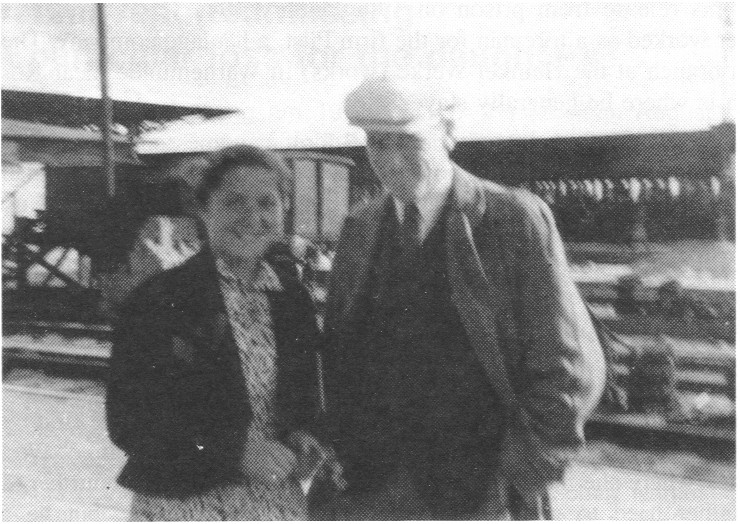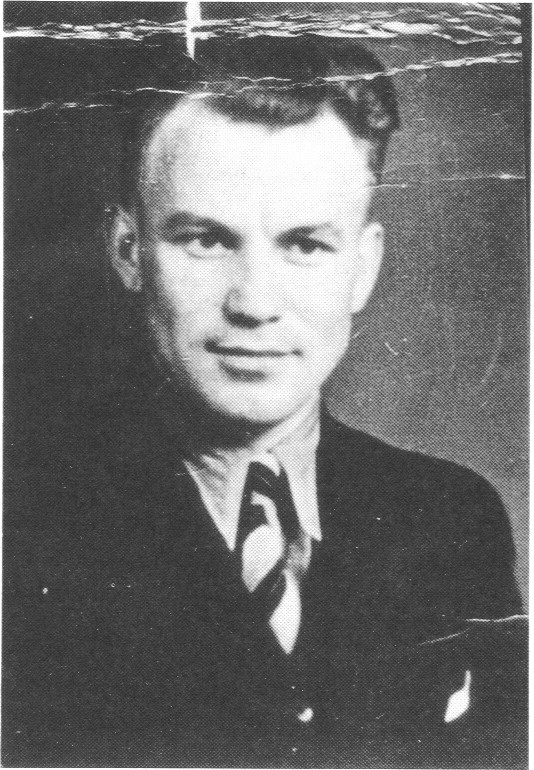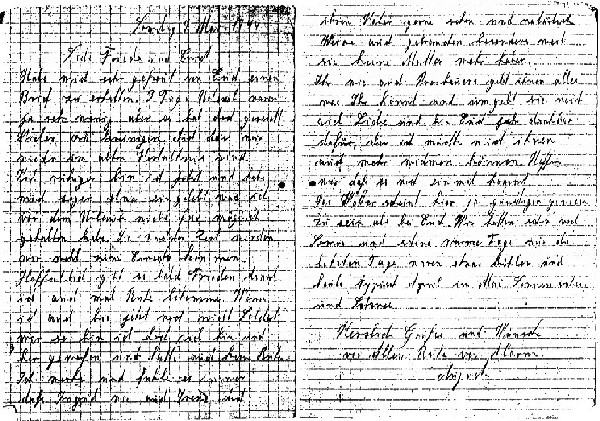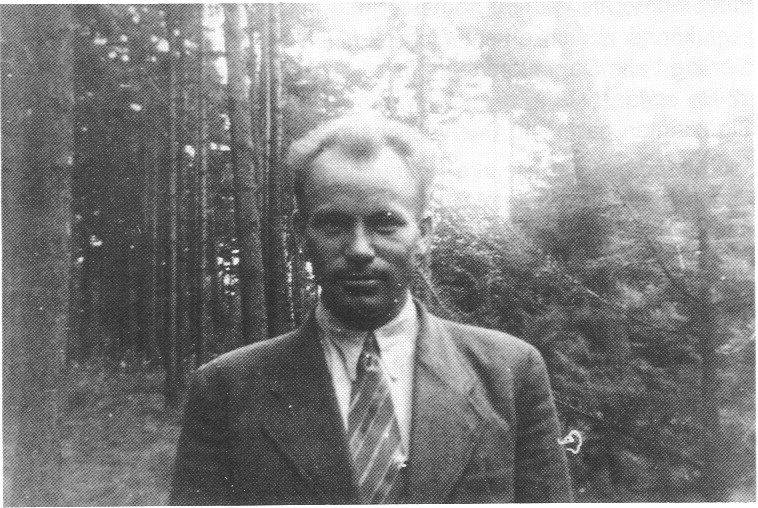
 In
February 1944 the was drafted and sent to the front woth "Bewährunsbataillon
999", which was a particularly tough unit for very risky operations,
made up of ex-prisoners and "undesirables", who were ostensibly
given the chance to prove themselves. It was known that the majority of
them would not survive.
In
February 1944 the was drafted and sent to the front woth "Bewährunsbataillon
999", which was a particularly tough unit for very risky operations,
made up of ex-prisoners and "undesirables", who were ostensibly
given the chance to prove themselves. It was known that the majority of
them would not survive.
In May 1944 he
wrote the following letter to Frieda, the grandmother, and her husband
Ernst:
Sunday 7th May 1944
Dear Frieda and Ernst,
Was very pleased to get a letter from you.
Three days leave is very short but it was enough to get a lot of things
sorted out. Also, to let us get back to the way things were. I'm much
calmer now and have even started to settle down a bit, something which I
didn't think possible before my leave. I'll be going into combat shortly.
I hope peace comes soon so that I can finally get some rest. Even though I
wasn't a soldier until now, I've still been thrown about a lot and never
had any peace.
I notice and still feel that Ingrid and Irene are glad to see their father
and, naturally, need him too, particularly as they don't have a mother any
more. You, like the Proskauers, give them everything you can and surround
them with lots of love. I am very grateful to you but would still like to
be able to do more myself. Let's hope it'll happen one day.
The weather seems to be better here than with you. We've had lots of sun
and lovely warm days. But the last few days have been cooler and today
it's typical April in May : sunshine and snow.
Warmest regards and best wishes, particularly for a break from air-raid
warnings, August

Irene never gave up hope that he might return.
She often stood on the railway bridge near Dammtor railway station and watched the trains.
Could he be one of the survivors?
She thought this explained why the Proskauers did not adopt her : they could not; the father might have come back.
In 1994 Irene saw that she had to bury her hopes. She found in Ingrid's papers the news from 6th November 1944, telling that he was reported missed, and, in the Guardian File, the letter of 4th June 1953 from her guardian, Herrn S.: